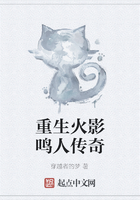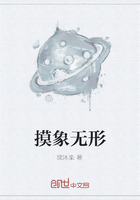5.M.Wolowski indulges in sarcasm against the petitioners for literary property."There are authors," he says, "who crave the privileges of authors, and who for that purpose point out the power of the melodrama.They speak of the niece of Corneille, begging at the door of a theatre which the works of her uncle had enriched....To satisfy the avarice of literary people, it would be necessary to create literary majorats, and make a whole code of exceptions."I like this virtuous irony.But M.Wolowski has by no means exhausted the difficulties which the question involves.And first, is it just that MM.Cousin, Guizot, Villemain, Damiron, and company, paid by the State for delivering lectures, should be paid a second time through the booksellers?--that I, who have the right to report their lectures, should not have the right to print them? Is it just that MM.Noel and Chapsal, overseers of the University, should use their influence in selling their selections from literature to the youth whose studies they are instructed to superintend in consideration of a salary? And, if that is not just, is it not proper to refuse literary property to every author holding public offices, and receiving pensions or sinecures?
Again, shall the privilege of the author extend to irreligious and immoral works, calculated only to corrupt the heart, and obscure the understanding? To grant this privilege is to sanction immorality by law; to refuse it is to censure the author.And since it is impossible, in the present imperfect state of society, to prevent all violations of the moral law, it will be necessary to open a license-office for books as well as morals.But, then, three-fourths of our literary people will be obliged to register; and, recognized thenceforth on their own declaration as PROSTITUTES, they will necessarily belong to the public.We pay toll to the prostitute; we do not endow her.
Finally, shall plagiarism be classed with forgery? If you reply "Yes," you appropriate in advance all the subjects of which books treat; if you say "No," you leave the whole matter to the decision of the judge.Except in the case of a clandestine reprint, how will he distinguish forgery from quotation, imitation, plagiarism, or even coincidence? A savant spends two years in calculating a table of logarithms to nine or ten decimals.He prints it.A fortnight after his book is selling at half-price; it is impossible to tell whether this result is due to forgery or competition.What shall the court do? In case of doubt, shall it award the property to the first occupant? As well decide the question by lot.
These, however, are trifling considerations; but do we see that, in granting a perpetual privilege to authors and their heirs, we really strike a fatal blow at their interests? We think to make booksellers dependent upon authors,--a delusion.The booksellers will unite against works, and their proprietors.Against works, by refusing to push their sale, by replacing them with poor imitations, by reproducing them in a hundred indirect ways;and no one knows how far the science of plagiarism, and skilful imitation may be carried.Against proprietors.Are we ignorant of the fact, that a demand for a dozen copies enables a bookseller to sell a thousand; that with an edition of five hundred he can supply a kingdom for thirty years? What will the poor authors do in the presence of this omnipotent union of booksellers? I will tell them what they will do.They will enter the employ of those whom they now treat as pirates; and, to secure an advantage, they will become wage laborers.A fit reward for ignoble avarice, and insatiable pride.
The property fever is at its height among writers and artists, and it is curious to see the complacency with which our legislators and men of letters cherish this devouring passion.
An artist sells a picture, and then, the merchandise delivered, assumes to prevent the purchaser from selling engravings, under the pretext that he, the painter, in selling the original, has not sold his DESIGN.A dispute arises between the amateur and the artist in regard to both the fact and the law.M.Villemain, the Minister of Public Instruction, being consulted as to this particular case, finds that the painter is right; only the property in the design should have been specially reserved in the contract: so that, in reality, M.Villemain recognizes in the artist a power to surrender his work and prevent its communication; thus contradicting the legal axiom, One CANNOTGIVE AND KEEP AT THE SAME TIME.A strange reasoner is M.
Villemain! An ambiguous principle leads to a false conclusion.
Instead of rejecting the principle, M.Villemain hastens to admit the conclusion.With him the _reductio ad absurdum_ is a convincing argument.Thus he is made official defender of literary property, sure of being understood and sustained by a set of loafers, the disgrace of literature and the plague of public morals.Why, then, does M.Villemain feel so strong an interest in setting himself up as the chief of the literary classes, in playing for their benefit the role of Trissotin in the councils of the State, and in becoming the accomplice and associate of a band of profligates,--_soi-disant_ men of letters,--who for more than ten years have labored with such deplorable success to ruin public spirit, and corrupt the heart by warping the mind?















